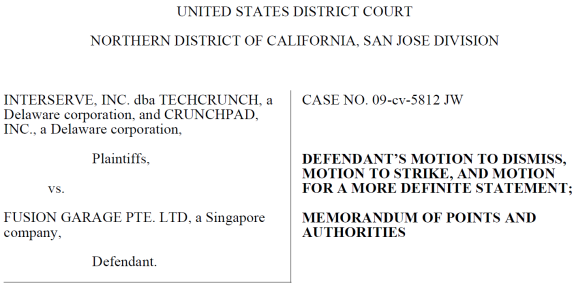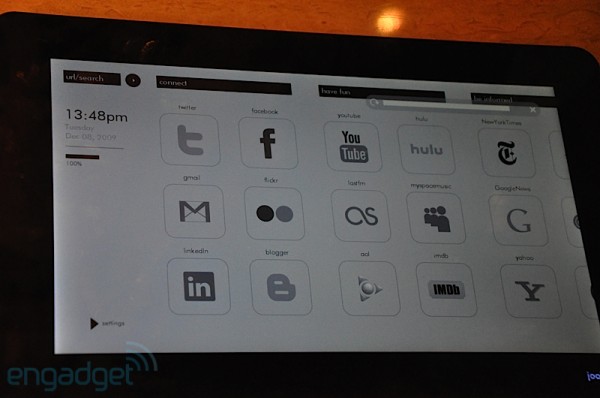“The case is so baseless as it was in December. We believe that at the end of the day we will win the case,” says Fusion Garage chief executive Chandrasekar Rathakrishnan.

Singapore-based technology start-up Fusion Garage is on a collision course with its former ally in a fight for the ownership of, and profits from, its tablet computer The JooJoo. Last Saturday, the 13-man team filed a motion dismissing American blog TechCrunch’s lawsuit, on the grounds that its claims either do not exist under the law or are “so vague and indefinite as to require a more definite statement”, according to legal documents. You can view the “Motion To Dismiss” PDF here.
The two had joined forces in 2008, after TechCrunch, a United States-based tech news website, put out a call for help in building a cheap touchscreen tablet computer for browsing the Internet. Fusion Garage, formed in January 2008, took its work to a meeting with TechCrunch founder Michael Arrington, who subsequently expressed interest in acquiring the Singapore start-up. Over the past year, the companies have progressively unveiled prototypes of the tablet, originally called the CrunchPad. But by November, negotiations had broken down, and Mr Arrington wet public about his unhappiness.
“The entire project self-destructed over nothing more than greed, jealously and miscommunication,” said Mr Arrington in a blog post dated Nov 30.
A week and a half later, Mr Arrington, a lawyer, sued Fusion Garage, accusing it of various offenses, including fraud, stealing its business ideas, false advertising and unlawful business practices. Following their public falling-out, but before Mr Arrington sued, Fusion Garage had announced that it had remained the tablet The JooJoo. It is due to begin shipping to US-based customers later this month.

In a 41-page claim filed with the United States District Court of California, TechCrunch’s lawyers, from Winston & Strawn, alleged that Fusion Garage was trying to cut the US company out of the rightful reward for its work on the project. Winston & Strawn, which has nearly a thousand lawyers and has represented clients like Microsoft, asked for unspecified damages and for Fusion Garage to be barred from selling the tablet.
Last Saturday morning, Fusion Garage’s lawyers, intellectual property litigation specialist Quinn Emanual Urquhart Oliver & Hedges, responded. Though smaller at about 400 lawyers, Quinn is no lightweight, boasting a client list which includes Google and IBM. In Fusion Garage’s 31-page legal brief, it said TechCrunch’s “claims for misappropriation of business ideas fail because no such claim exists under California law”. Fusion Garage also took issue with the claim for false advertising, as TechCrunch does not have a competing product. Other claims like that of “breach of fiduciary duty” and for “fraud and deceit”, it said, were simply “too vague and imprecise to state a claim”.
TechCrunch, it said, did not say to whom Fusion Garage “allegedly owed a fiduciary duty…the complaint is internally inconsistent — suggesting at times that Fusion Garage’s alleged duty ran to both plaintiffs and suggesting at other times that the duty ran to one or the other.”
For these reasons, it has asked the court to dismiss TechCrunch’s suit, or have it come back with a more specific case before fixing a hearing date. Fusion Garage chief executive Chandrasekar Rathakrishnan said yesterday: “The case is so baseless as it was in December. We believe that at the end of the day we will win the case.”
The Strait Times was unable to contact Mr Arrington last night.
Via The Straits Times, Tuesday, February 2, 2010.